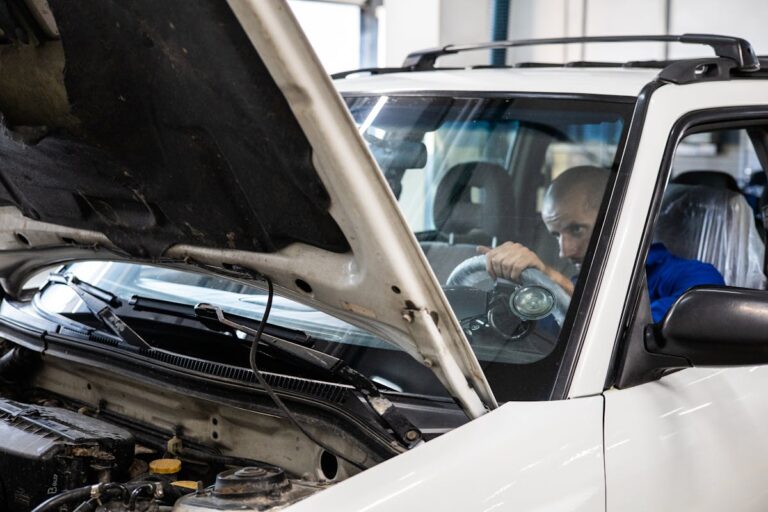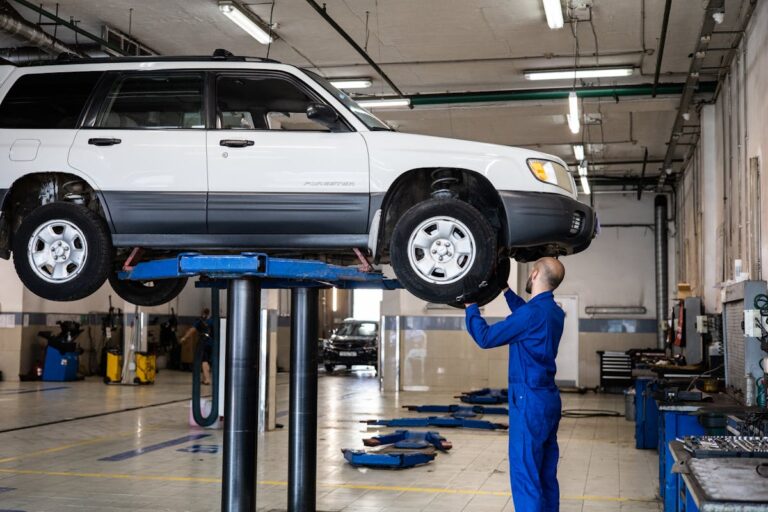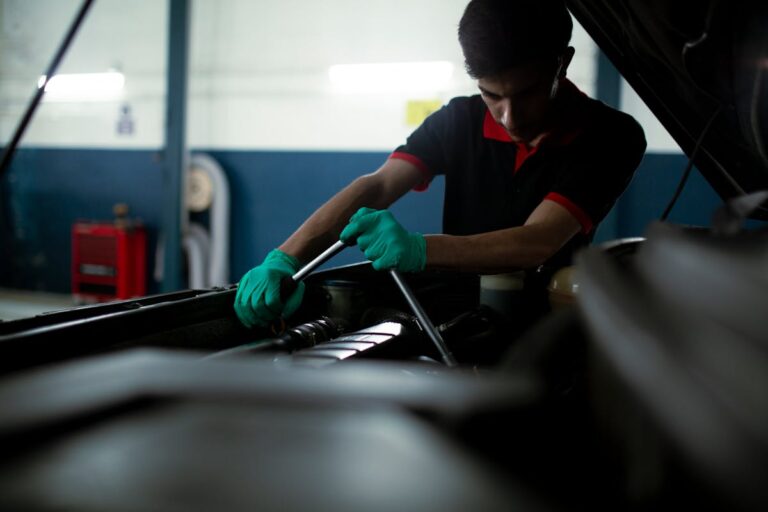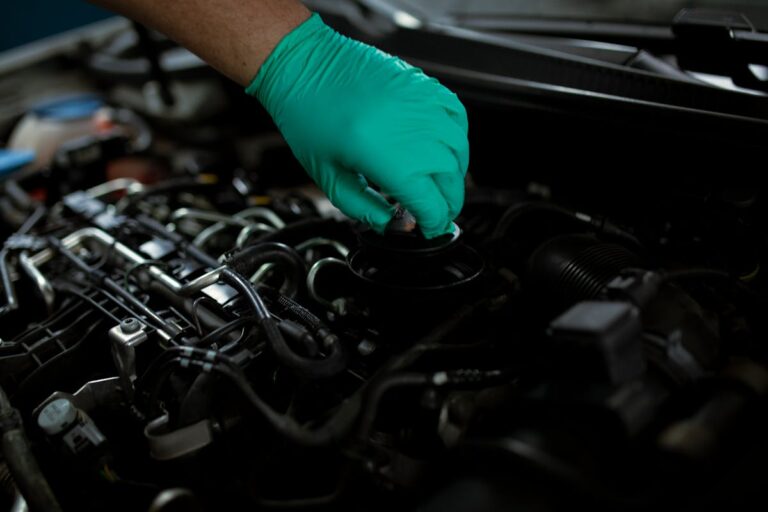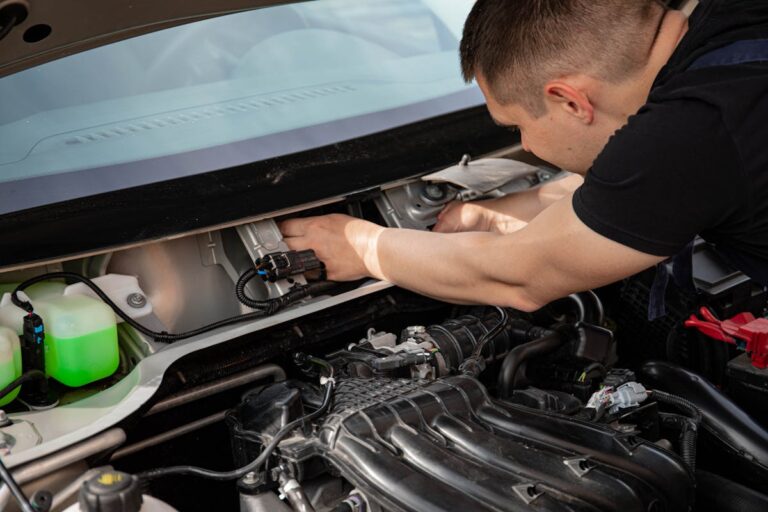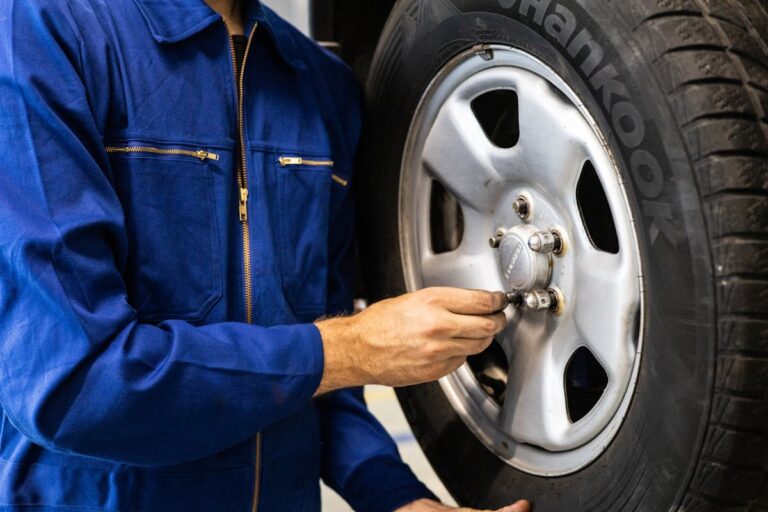While it might seem convenient and cost-effective in the short term to postpone scheduled car maintenance, such a decision carries with it a multitude of risks that can substantially impact not only your vehicle’s performance but its overall lifespan and safety as well. These risks encompass potential mechanical failures, inflated repair costs due to escalated minor issues, compromised safety systems, and a marked decrease in fuel efficiency. Additionally, disregarding maintenance schedules can adversely affect your vehicle’s resale value and even jeopardize the validity of the manufacturer’s warranty. Consequently, the question arises: are we truly saving by delaying our vehicle’s maintenance?
Increased Breakdown Risk
The heightened risk of vehicular breakdown is a significant consequence of neglecting regular car maintenance. This neglect exacerbates the likelihood of mechanical failure, which invariably leads to unexpected expenses and inconveniences. The intricate systems within a motor vehicle – from the engine to the suspension, the brakes to the transmission – all necessitate periodic checks and maintenance to guarantee peak functionality.
Mechanical failure, in this scenario, refers to the malfunctioning of any car component due to wear and tear, poor manufacturing, or lack of regular maintenance. These failures often manifest as engine issues, brake problems, or transmission malfunctions, which can result in a vehicular breakdown. These breakdowns are not only inconvenient but can also be dangerous, especially when they occur on busy roads or in adverse weather conditions.
Additionally, the financial implications of these unexpected breakdowns are considerable. The costs associated with towing services, emergency repairs, and potential rental cars can quickly accumulate, creating burdensome and unplanned expenses. Moreover, regular maintenance helps maintain a vehicle’s resale value, reducing long-term costs. Ultimately, regular car maintenance is essential to mitigate the risk of mechanical failures and unexpected expenses.
Elevation in Repair Costs
The escalation in repair costs is a significant risk associated with delaying car maintenance. Neglected maintenance can result in minor repairs growing into more serious, costly issues. Additionally, the comparison of preventive versus reactive costs accentuates the financial burden that postponed maintenance can impose on car owners.
Escalating Minor Repairs
While it might seem economical to delay minor car repairs, such procrastination can lead to a significant elevation in repair costs over time. The escalating costs associated with delayed repairs are primarily due to the interconnected nature of automotive systems; a minor issue left unattended often exacerbates, compromising other parts of the vehicle.
Consider an example: delaying an oil change – a relatively inexpensive and straightforward procedure. Over time, the oil becomes less effective, leading to increased engine wear and, subsequently, decreased performance and fuel efficiency. If this minor maintenance is continuously ignored, the engine could eventually fail, leading to repair costs that vastly exceed the price of regular oil changes.
Preventative measures are essential in mitigating these escalating costs. Preventative maintenance, including regular check-ups and timely minor repairs, can help identify potential problems early on, thereby avoiding the domino effect of escalating repair costs.
Neglected Maintenance Consequences
Overlooking regular car maintenance can have dire consequences, especially regarding escalating repair costs. Prolonged neglect of key components of your vehicle, such as the engine and tires, can lead to significant issues that require expensive repairs.
Poor engine performance is often the direct result of neglected maintenance. When regular oil changes are skipped, the engine’s components are not lubricated effectively, causing excessive wear and tear. As a result, major components can fail unexpectedly, leading to high repair costs. Additionally, when regular maintenance checks are ignored, issues like a clogged air filter or a malfunctioning spark plug can go unnoticed. These conditions can negatively affect the engine’s performance, fuel efficiency, and lifespan, eventually leading to costly engine repairs or replacements.
Neglecting tire maintenance is another factor contributing to higher repair costs. Failure to regularly check tire pressure and alignment can lead to accelerated tire wear. This not only requires the premature replacement of tires but can also cause damage to the suspension system. Without regular rotations, tires wear unevenly, reducing their lifespan and potentially causing a dangerous blowout on the road.
Preventive Vs Reactive Costs
Contrasting the costs associated with preventive and reactive measures can further highlight the financial implications of delaying car maintenance. Preventive measures primarily include regular inspection and servicing of the vehicle to guarantee all parts function at their best. This includes oil changes, tire rotations, brake checks and other routine checks. The cost analysis of these measures, while seemingly high in the short term, is markedly lower when compared to the potential costs of reactive measures.
Reactive measures, on the other hand, refer to repairs and replacements that become necessary due to neglect of preventive measures. These could include major engine overhauls, transmission replacements, or extensive bodywork, all of which can be considerably expensive. In fact, the cost of reactive measures can easily skyrocket to several times that of preventive measures.
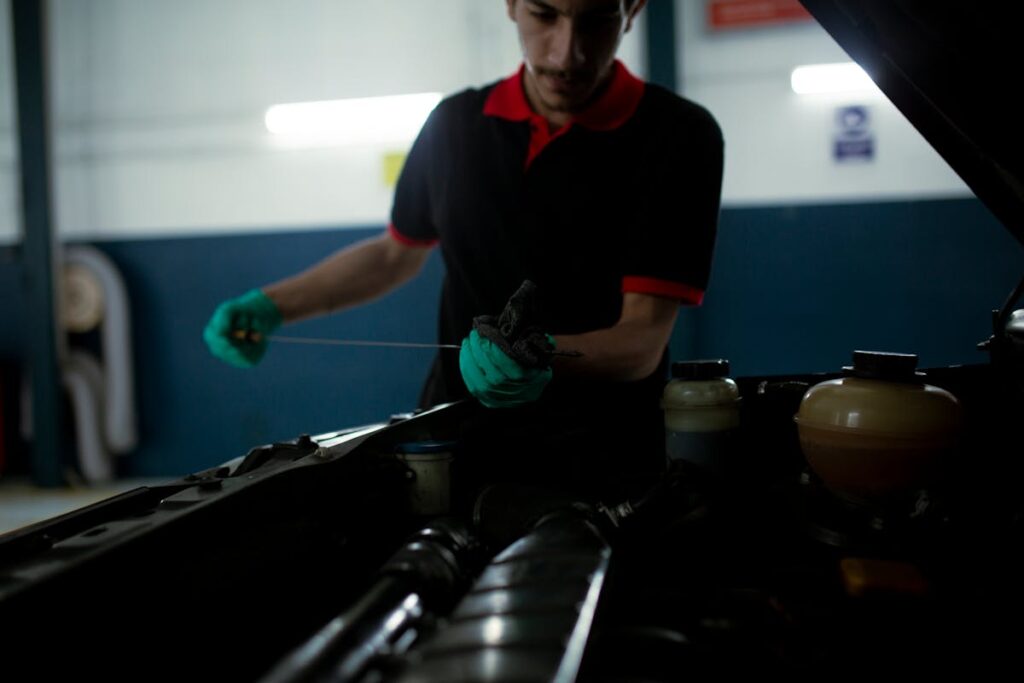
Decreased Fuel Efficiency
The phenomenon of decreased fuel efficiency in vehicles is often a direct result of delayed maintenance. It is essential to understand how the lack of regular servicing can cause a decline in mileage, resulting in increased fuel consumption. The intricate link between vehicle maintenance and fuel efficiency will be the primary focus of this section.
Understanding Fuel Efficiency Decline
A significant portion of motorists may not realize that delaying regular car maintenance can lead to a noticeable decline in fuel efficiency. This effect stems from the fact that a well-maintained vehicle maximizes fuel combustion, which directly impacts engine performance and, hence, fuel efficiency.
One essential factor with significant bearing on fuel efficiency is fuel quality. High-quality fuel burns more cleanly and efficiently, resulting in peak engine performance. Conversely, lower-quality fuel can cause engine deposits that hinder the vehicle’s performance over time. Regular maintenance procedures, such as fuel system cleaning, can prevent this buildup, thereby maintaining the vehicle’s fuel efficiency.
Moreover, other routine maintenance tasks, such as oil changes, air filter replacements, and tire pressure checks, also play integral roles in ensuring peak fuel efficiency. For instance, clean oil reduces friction among the engine parts, which in turn enhances engine performance and translates into improved fuel efficiency.
Maintenance Impact on Mileage
While the aforementioned factors highlight the importance of regular maintenance in guaranteeing peak fuel efficiency, it is equally important to understand how the lack of such upkeep can negatively impact your vehicle’s mileage. Neglecting prescribed maintenance schedules can lead to a substantial decrease in mileage longevity, ultimately resulting in an inefficient, costly operation of your vehicle.
A vehicle’s engine is designed to operate within certain parameters for ideal performance. Over time, components wear, fluids degrade, and buildup accumulates, causing the engine to work harder than necessary. This strain increases fuel consumption, leading to lower miles per gallon (mpg). Regular maintenance, such as oil changes, tire rotations, and air filter replacements, guarantees these components function properly and contribute to maximizing mileage longevity.
Furthermore, delayed maintenance can cause more severe mechanical issues. Ignoring minor problems like a dirty air filter can lead to significant engine damage, reducing overall fuel efficiency. Timely adherence to maintenance schedules plays a vital role in maintaining the vehicle’s ideal fuel economy, ultimately contributing to its longevity.
Reduced Vehicle Lifespan
Neglecting routine maintenance tasks can lead to a significant reduction in the lifespan of a vehicle. The primary determinant of a vehicle’s longevity is the state of its engine, a complex assembly of precision parts that rely on regular care to function efficiently.
Over time, without proper maintenance, engine wear becomes inevitable. Fluids and lubricants, designed to reduce friction and dissipate heat within the engine, degrade and lose their efficacy. This results in increased metal-on-metal contact, causing accelerated wear and tear on essential components such as the pistons, cylinders, and crankshaft.
Longevity factors also include the condition of the vehicle’s cooling system, electrical components, and the drivetrain, all of which can deteriorate faster when maintenance is delayed. For instance, a failing cooling system can result in engine overheating, leading to severe damage. Similarly, neglecting the drivetrain can result in poor transmission performance, causing stress on the engine.
Compromised Safety Measures
Compromised by delayed maintenance, safety measures embedded into the design of a vehicle can fail to function as intended, leading to increased risk of accidents. These failures can take many forms, but two of the most common and dangerous are brake failure and tire blowout.
Brake failure is a serious risk associated with postponed maintenance. Brake pads and rotors wear down over time, reducing the effectiveness of the braking system. Delaying replacement of these components can lead to a complete brake failure, rendering the vehicle unable to stop or slow down effectively. This considerably increases the risk of collision, especially in traffic or at high speeds.
Similarly, tire blowout is another risk associated with delayed maintenance. Tires naturally degrade with use and need to be replaced at regular intervals. Delaying this can lead to a tire blowout, a sudden and abrupt loss of tire pressure, often while the vehicle is in motion. This scenario can cause the driver to lose control of the vehicle, potentially resulting in a catastrophic accident.
Lowered Resale Value
The financial implications of delaying car maintenance extend beyond immediate repair costs. One significant concern relates to the lowered resale value of the car. In the resale market, a vehicle’s condition plays a pivotal role in determining its value. Potential buyers and dealers scrutinize the mechanical and aesthetic state of a car, often investing in pre-purchase inspections.
When regular maintenance is neglected, major systems within the car deteriorate faster. This deterioration can lead to visible wear and tear and underlying mechanical problems, which are detrimental to the vehicle’s performance and longevity. This can be especially problematic when attempting to sell the car.
Vehicles that have been well-maintained command higher prices in the resale market. The reason being, a well-maintained vehicle provides assurance to the potential buyer of its performance and reliability.
In contrast, cars with a history of delayed maintenance often necessitate substantial repair work, thereby lowering their resale value. The evidence of neglected maintenance can be a red flag for many buyers, prompting them to either negotiate for a lower price or avoid purchasing altogether. Consequently, timely maintenance is not just about preserving a vehicle’s functionality, but also its economic value.
Impact on Manufacturer’s Warranty
A significant majority of new cars come equipped with a manufacturer’s warranty, a promise of coverage for certain defects or malfunctions that may occur within a specified period. This warranty coverage is a significant asset for car owners as it reduces the financial burden of unexpected repairs. However, it’s typically contingent upon adherence to the vehicle’s regular maintenance schedule.
Delaying or skipping scheduled car maintenance can adversely impact the warranty coverage. Most manufacturers stipulate in their warranty documentation requirements that scheduled maintenance must be performed timely, typically by an authorized service center, to keep the warranty valid. If maintenance is delayed or ignored, the manufacturer may have grounds to deny warranty claims, arguing that the owner’s negligence contributed to the defect or malfunction.
Moreover, the documentation requirements for warranty claims often necessitate proof of regular maintenance. Without such documentation, the manufacturer can dispute the claim. Consequently, it is highly recommended to adhere to the car’s maintenance schedule and keep accurate records.
In essence, delaying scheduled car maintenance not only jeopardizes the vehicle’s performance but also risks voiding the manufacturer’s warranty, resulting in potential financial consequences for car owners.
Frequently Asked Questions
What Is the Average Cost of Regular Car Maintenance?
The average cost of regular car maintenance varies widely, depending on the vehicle’s make, model, and age. However, a good rule of thumb is to budget for maintenance costs of about $1,200 annually.
How Often Should I Get My Car Serviced?
Car servicing frequency can vary by vehicle make and model. However, typically, a car should be serviced at scheduled intervals as outlined in the vehicle’s maintenance checklist, usually every 12,000 miles or 12 months, whichever comes first.
What Are Common Signs My Car Needs Maintenance?
Common signs your car needs maintenance include engine warning lights appearing on the dashboard, unresponsive or overly sensitive brakes, unusual noises, and noticeable changes in handling, fuel efficiency, or overall vehicle performance.
Can I Perform Any Car Maintenance Tasks at Home?
Yes, several car maintenance tasks can be performed at home. For instance, you can change the oil filter and perform a tire rotation. However, these tasks require a basic understanding of car mechanics.
Does Skipping Oil Changes Affect My Cars Performance?
Yes, skipping oil changes can greatly affect your car’s performance. The importance of oil changes lies in maintaining ideal engine performance, as they help reduce friction, cool the engine, and remove harmful particles.
